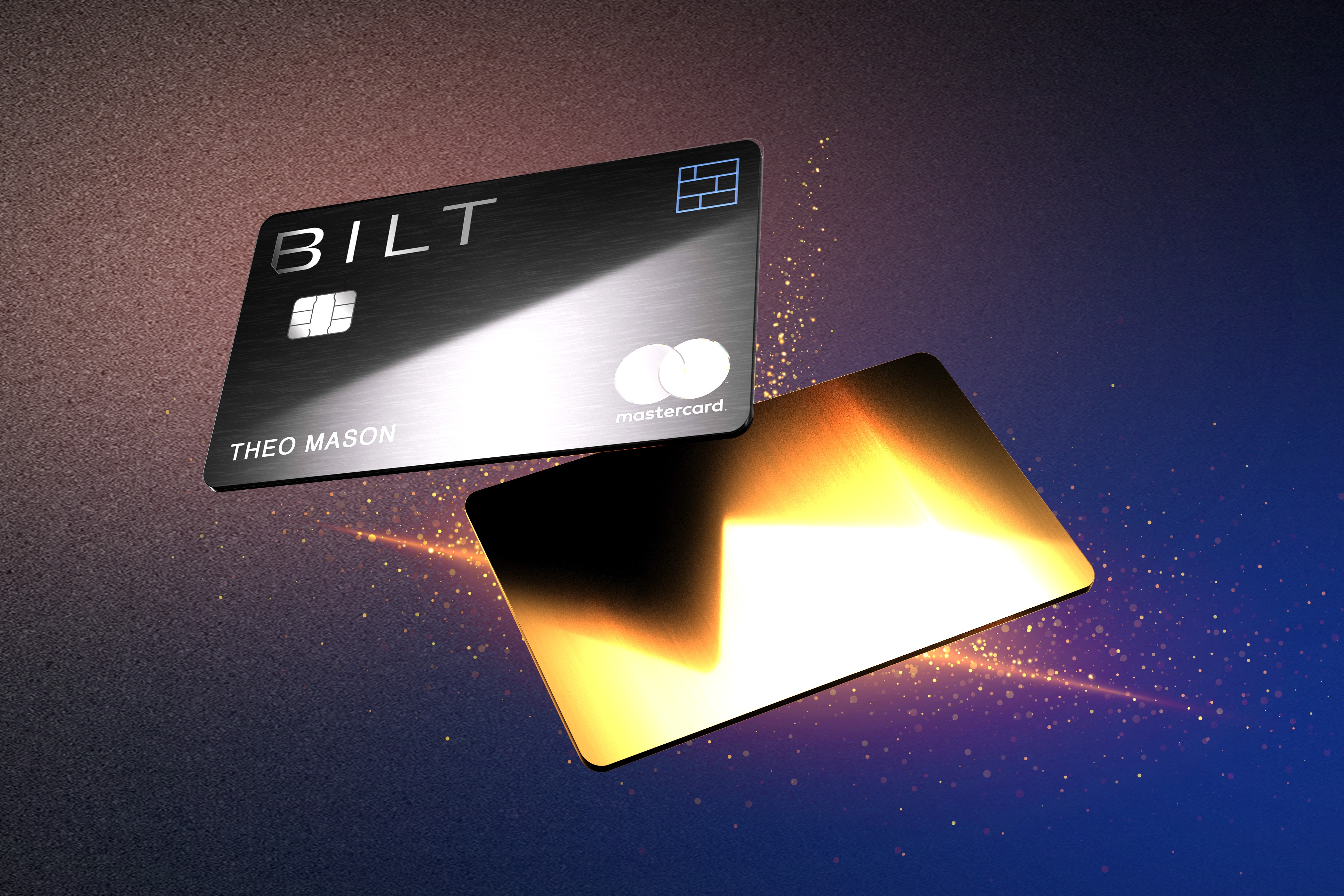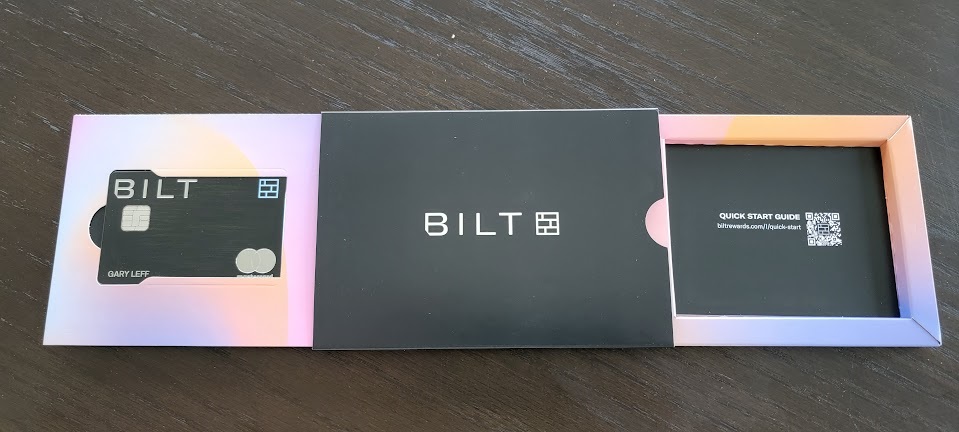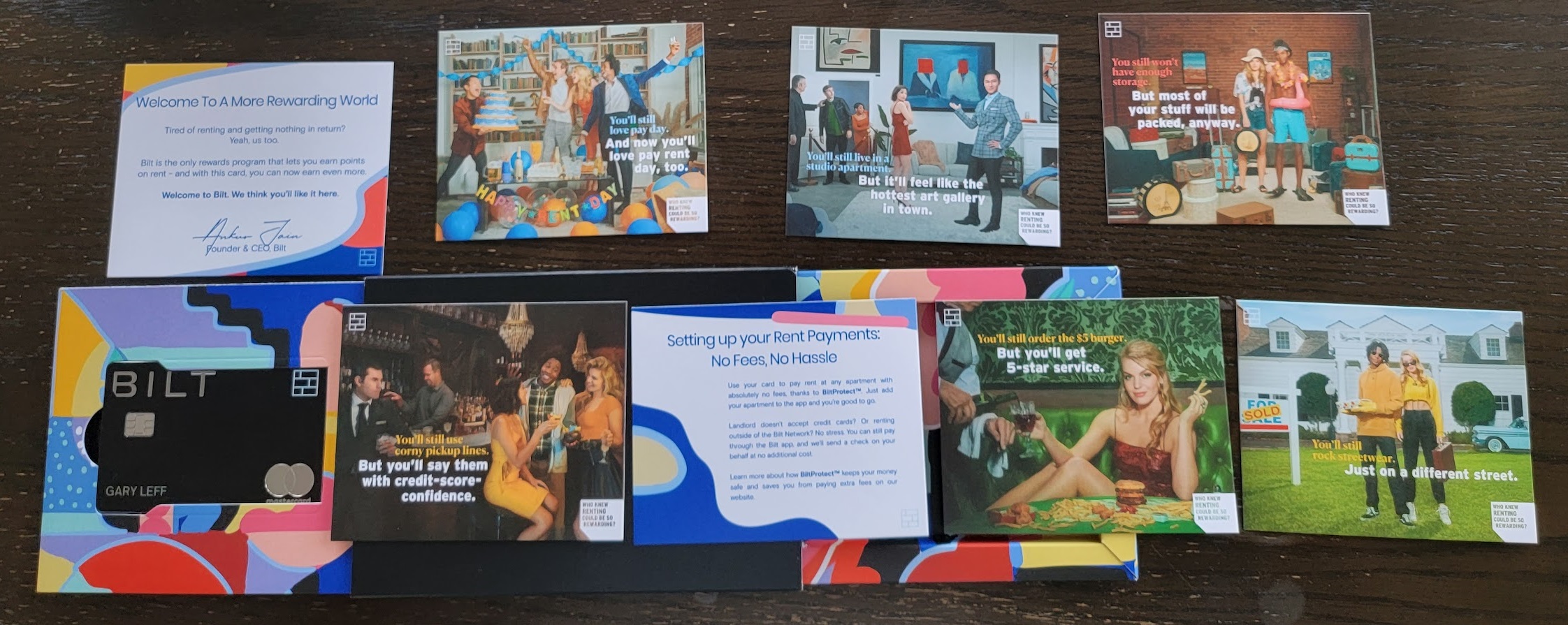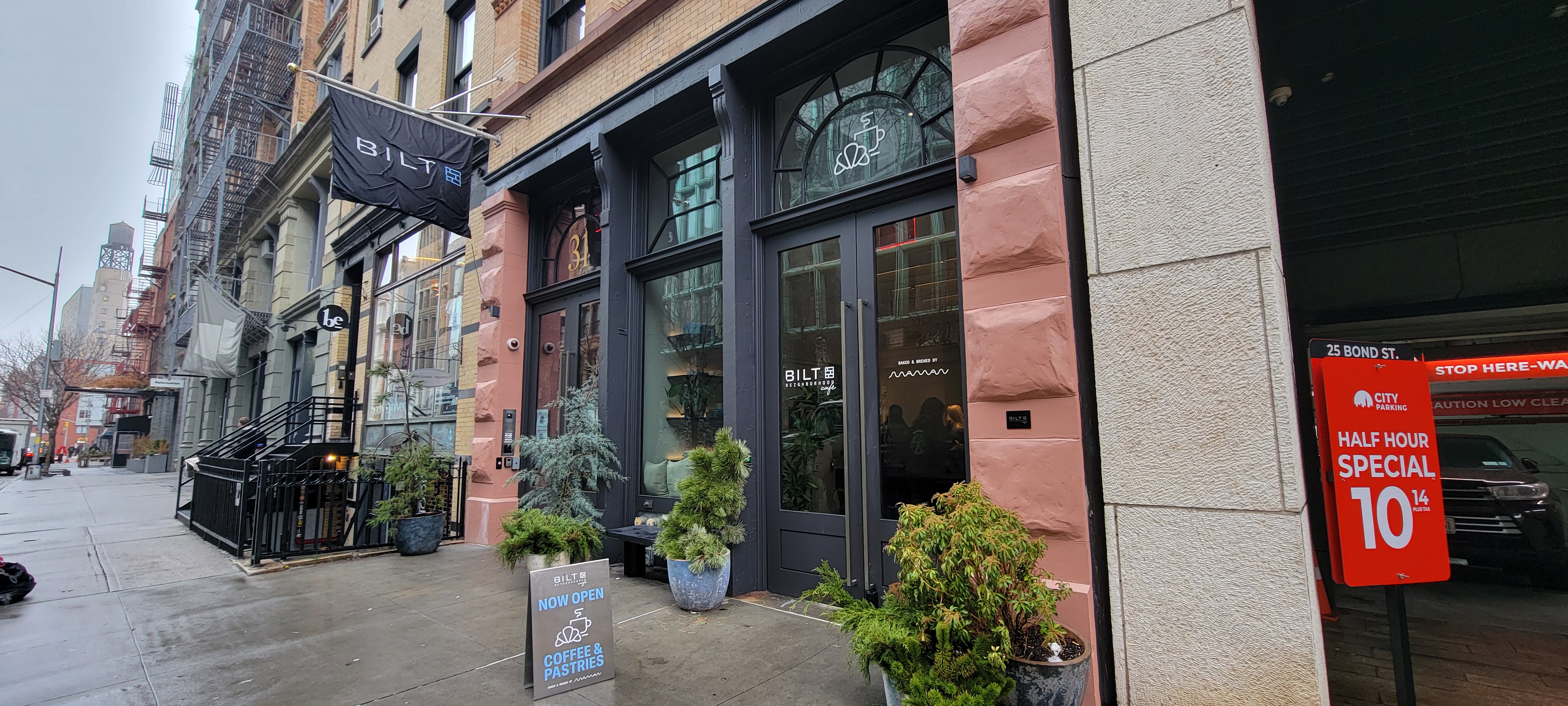Bilt Rewards CEO Ankur Jain appeared on the Wall Street Journal‘s Bold Names podcast and walked through some of the economics of their business, some of what are broadly perceived as challenges, and how they’re planning to grow – including some hints about what’s behind recent surveys for a refresh of their credit card.
Last year the Journal covered why Wells Fargo is losing money on the Bilt credit card. People don’t get big enough credit lines to put much more than their rent of the card. They pay their rent off every month, and don’t wind up with enough other charges on the card. The deal Wells signed was expensive. (Although everyone forgets that Wells is also an investor in Bilt.)

Yet as Jain reminds, of course the product loses money up front. All card acquisition loses money up front. Normally initial bonus offers might cost a bank $500 – $1,000 per cardmember and they’re paying marketing costs to put the card into consumers’ hands, too. The Bilt card doesn’t have those same expenses, but it’s still what you’d expect.
Customers weren’t spending and revolving on the card like Wells had hoped. They need to better segment customers better. Jain uses the example of Amex Green, Gold and Platinum. So we see Bilt surveying different card value propositions at different annual fee price points.

A one-size fits all card, he says, doesn’t work for something so broad-based. (Jain doesn’t say it, but comparing card performance to an ex ante model used to justify the deal with Bilt doesn’t make sense – the intention was always to lose money on the deal as the bank got into co-brand, won business and established itself in that space – a strategy they’ve since walked away from, making overpaying for this and other products seem less wise but only in light of their more recent strategy shift.)
What Bilt has done is found a way to solve the distribution problem. Card companies pay airlines billions of dollars for help finding customers. Bilt spun up from scratch, created a brand and pipeline for finding customers that partners are interested in reaching. They want to earn Bilt’s points and benefits. And that is worth billions of dollars.
With cards or any financial product, there’s a higher acquisition cost that gets paid off over time. That’s number one. But the hardest part was, can you actually build a new product that didn’t exist and see that people actually are excited to sign up, which was exciting, which we’ve now proven through our distribution.

They did this in a number of ways, but fundamentally they:
- solved landlord billing and marketing problems (and in the process disrupting property management systems), giving them access to renters
[T]hink of it as Toast for housing, payment processing for the housing. On top of that, we built a leasing solution so that property managers who are spending tens of billions of dollars a year on incentives to sign leases, renew leases. So if you rent ever, in San Francisco, for example, you might be familiar with sign a 12-month lease, get a month free. Or get a $500 gift card when you refer a friend, that kind of model. We’ve now turned that into a … They issue their incentives through Bilt.
…when we went to property owners and managers, we said, “Hey, here’s a new payments’ platform. For the same price, we will, A, give some of the margin we make back to the customer in the form of rewards.” And in doing so, we are able to build a broader customer based ecosystem where, now, when you’re issuing a month of free rent, let’s say, and you do that through Bilt, we’ll offer you, Tim, a month of rent, as you sign a lease. Or you can choose to get 250,000 miles, plus $50 of dining credit a month in your neighborhood, plus a complimentary Lyft ride to and from your home every month to the office. And you can choose what type of incentive you want, which helps them close leases faster. And when you choose a rewards option, part of that is merchant co-funded on our side. And so we can actually save the property manager 5%, 10%, while creating more value for the tenant.
- solved renter problems, giving them rewards for their biggest expenses – in a way nobody else was doing
At its core, we started Bilt to reward people on their biggest monthly expense, which is rent. And it’s funny because it’s one of those things where people have totally taken it for granted. But you spend 30%, 40%, in some cities 50% of your income on housing costs every single month, and, yet it’s the one category that hadn’t really been modernized to the way that the rest of the payments ecosystem has evolved. I mean, if you’re under 35, the only reason you probably have a checkbook still is for rent. So can you digitize that, and can you do what other payment worlds have done, and bring rewards into the experience?

Once Bilt has these customers, has their attention, has their purchase intention (and data) they can market to the customer. And, like airlines, they can monetize that through offers to the customer. That’s why Bilt is valuable to Lyft, Walgreens, and neighborhood restaurants they partner with. And they can continue to bolt on partnerships, and expand their member base by moving into mortgages the way they’ve done with rent.
And that doesn’t just mean ‘get rewards for paying your mortgage with our co-brand card’. Ankur Jain says that they’re going to be taking over payment processing for large mortgage servicers, the way that they’ve done for residential buildings.
Again, this year we will be rolling out for a significant part of American mortgages where, just like when you move into an apartment building, one of the first things you’ll see is they say, “Hey, go create your Bilt account to pay your rent.” That’s how you pay. It’s the only way to pay your rent, these properties. And you get rewards for it and you get benefits for it. We call it neighborhood benefits.
Same concept with mortgage. There are a lot of these mortgage servicers who have been using legacy payment systems, and how can we say when you use Bilt to make your mortgage payment on time, you get rewarded, you get access to neighborhood benefits, you get value as a customer. And by the way, your mortgage servicer is also now generating new value out of what was historically just a cost center for them.

Co-brand cards are a bigger business than Rewards Network dining, but their value to a card partner is only growing as their membership and data grows – and they’re offering access to (1) high disposable income customers (2) early in their life as consumers.
(HT: @crucker)


Did you sign a new deal with Bilt? Lots of Bilt stories this past week
This site has become completely unusable with all of the pervasive ads. I’m about done even checking this place…. all of the other blogs regurgitate the same info anyways pretty much.
@Adam – No.
1/ I visited with Bilt, so wrote about their coffee shop at their office and using BLADE (where I redeemed my credit).
2/ I wrote this piece when a reader sent me the podcast and I thought it was interesting, and decided to add my own context and commentary.
Note, you do not even see any referral links in the post, right..?
I don’t think Bilt has the problem that many of its cardholders are highly unlikely to use their Bilt cards for spending other than on their rents (or mortgages in the future), a couple of bonused categories, and whatever else they could charge on Rent Days. How does Bilt make the economics work in the long term if it can’t solve that problem?
If WF knew from the get-go that Bilt was going to be a loss leader for a while then I’m surprised they’re showing remorse in partnering with Bilt. Shortsightedness of their new position aside, Wells can look like heroes in that things are proceeding somewhat as planned or they can look like goats for suddenly not realizing what they knew all along about this being a long term benefit with a short-to-mid term cost.
To the contrary of what others have said, this the 1/10th of articles that fairy jeff posts which are NOT useless culture war/gas lighting attempts to drive click throughs for ad rev and better referral rev (if more users click through, more are likely to comment and/or actually click on a referral link). I just scroll right past those.
Bilt raises awareness of maximizing bonused spending by category in users who were otherwise under-aware. They’ll be able to keep customers because they’re stuck paying off that mortgage or rent for a long while at one location…but will those customers really be willing to spend/incur other charges on Bilt? Most consumers of this income class, early in lifecycle, don’t have time for the coupon book approach used by some issuers and simply want category bonusing rotating no more frequently than once per quarter, not a million one-off offers. And not from an issuer which frequently and significantly changes rules of their game. So, one can imagine a fairly low ceiling for value Bilt can bring to partners.
At one point in time the game was to take advances against my interest-only HELOC of $30,000 per day then drive to Walmart and pay the $30,000 off with the Suntrust Delta debit. I accrued quite a few miles doing that several times per week.
Now, it seems like we may have some kind of opportunity to do this again with Wells and the BILT card.
Thoughts?
@Sam Kim – You’re correct about the younger generation not wanting a coupon book (who does?) to get value. I suspect that for Bilt to achieve top-of-wallet status they’re going to have to figure some ways to provide sufficient value on an ongoing basis – not just Rent Day – that it makes for an easy no brainer card. They’re not there yet and you can bet dimes to dollars that Gary told them this when they brought him in to confer. It’s a tricky balance trying to offer substantial value while earning a profit and it’s not a sure thing that Bilt will even listen to what Gary says, particularly since Wells Fargo seems to have forgotten that Bilt is supposed to be a loss leader.
@Sam Kim — Sir, you are really missing out. The ‘culture war’ thunderdomes at VFTW are often a good time. You just have to set the right expectations—speaking of, with BILT, the expectation has been that we get 1 point per dollar spent on rent (up to the limit), which was pretty good in-and-of itself for a while. If Ankur bumps up the no-fee card to simply 1.5x all purchases, then that’s good enough for me personally to put all excess non-category domestic US spend on my card.
This entire article, especially the quotes from Bily, sound like a mountain of bs.
As a new card holder (this month) I have found Bilt to be useless without me having to pay my daughters college rent and 3-4 mortgages. There are way better credit cards out there with better rewards. Until they don’t change these terms, I’m no longer interested in using Bilt.
So much spin and BS – Bilt was hype, some of us milked it. It benefited the large scale urban landlords. I comment on these with extra skepticism because it was clear for a time at the peak of hype they had people coming into these comments fields responding with party lines.
If one of the largest mortgage originators regrets the deal, Wells, how are they going to make traction in mortgage.
Chase, Citi and BofA can offer rewards on mortgages they retain in a heartbeat if there was a value prop for them to do so – especially for the higher tier ones they keep on their books. Don’t need Bilt or its customers for that. Almost all of them are probably already Chase, Citi, BofA customers anyway.
BILT is serviced by Wells Fargo and that killed it for me